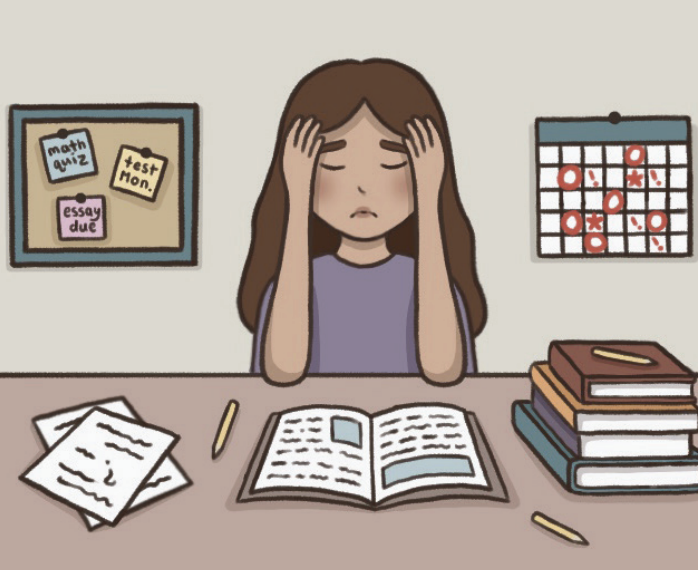 According to the Grade Level Deans, demerit slips have recently been piling up like the line in Café M for two main offenses: violation of the uniform code and inappropriate use of cell phones, as students have been caught talking or typing on their smartphones during free periods and breaks.
According to the Grade Level Deans, demerit slips have recently been piling up like the line in Café M for two main offenses: violation of the uniform code and inappropriate use of cell phones, as students have been caught talking or typing on their smartphones during free periods and breaks.
The Student Handbook of Expectations states that cell phones are to be turned off at all times during the school day and will result in a demerit slip if a student is caught using one or if her phone rings during class. Juniors and seniors are also supposed to lose their lunch privileges if they violate this rule; the payphones in our locker hallways are the only phones acceptable to use during the day.
The latest revisions to the Handbook occurred before cell phones became “smartphones” and girls became increasingly reliant upon them. Our use of cell phones now far exceeds what it used to be. Not only are our phones smaller than the walkie-talkie-sized models that girls used to carry around, but they are able to do much more.
We can search encyclopedias, find exponents and even read Mark Twain, all from the convenience of our phones. Popular apps such as iTranslate, SAT Vocab and myConvert, a unit converter, are all helpful and popular apps used for homework. While computers and cell phones can be a distraction in the classroom, they are essential resources needed to study and accomplish our work. Students whose phones are taken away are often punished for checking their e-mail or searching the Internet, actions that are perfectly acceptable when performed on a computer or iPod Touch.
We understand that there are girls who do text and make calls during the day, but it’s unfair that if one student checks Facebook on her iPod and another responds to an email on her iPhone, only the girl with the phone will have her device confiscated and receive a demerit.
As the school constitution undergoes a series of revisions, it’s about time the cell phone policy in our Handbook was updated as well. A girl should be able to use her phone in the same capacity as an iPod touch, and demerits should only be given out if a student is caught talking, texting or using her phone during class. General smartphone use should be allowed, because there is more to our phones than making calls and texting.
If everyone follows the rules of the Understanding, which expects students to uphold honor, trust and individual responsibility, using our phones can make doing homework at school easier. We shouldn’t have to worry about our little encyclopedias being snatched from our hands. It’s about time for us to re-think our cell phone policy, so that we may all coexist more peacefully and hopefully reduce the number of demerits given out.




